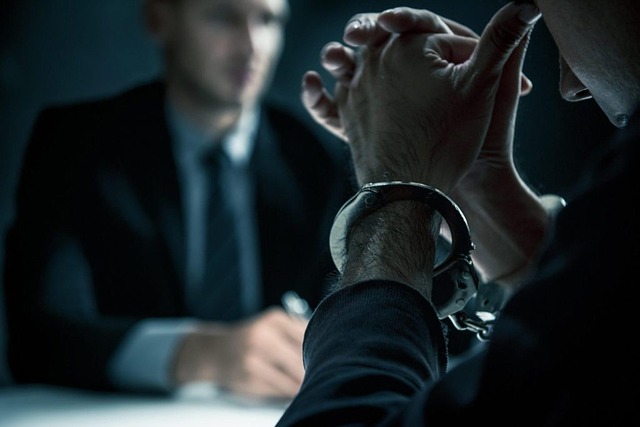Litigation encompasses diverse types, from civil lawsuits to criminal proceedings, each with distinct goals and procedures. In high-stakes cases like white-collar crime, understanding these nuances is crucial. This text focuses on the role of Understanding Jury Biases in Criminal Cases, which can significantly influence outcomes, especially in high-profile trials. It highlights how legal professionals must navigate these biases through strategic evidence presentation, witness selection, and argumentation to secure fair verdicts, even potentially leading to charge dismissal.
“Unraveling the intricacies of litigation types is key to comprehending jury dynamics, especially in the context of criminal trials. This article offers a comprehensive overview, delving into the distinctions between civil and criminal cases, while exploring common legal disputes that often grace courtrooms.
The focus then shifts to the critical matter of understanding jury biases, detailing the selection process, potential influences, and strategies for mitigation. We further analyze the impact of litigation types on jury verdicts, considering media coverage, public opinion, and statistical insights. These factors collectively shape the landscape of impartial juries in today’s legal system.”
- Types of Litigation: An Overview
- – Civil vs Criminal Cases
- – Common Legal Disputes (Contract, Torts, Property)
Types of Litigation: An Overview

Litigation comes in various forms, each with its unique characteristics and implications. Understanding different litigation types is crucial for both legal professionals and those involved in high-stakes cases, such as white-collar and economic crimes, which often navigate complex legal landscapes. From civil lawsuits to criminal proceedings, each type has distinct procedures, focuses, and outcomes.
Civil litigation, for instance, involves disputes between private parties or organizations, addressing issues like contract breaches, personal injuries, or property damages. On the other hand, criminal litigation centers on accusations of committing a crime, with the state or prosecution representing one side and the defendant the other. In the realm of criminal cases, understanding jury biases is essential, as they can significantly impact outcomes, especially in high-profile or politically charged trials. Moreover, the involvement of philanthropic and political communities in certain cases adds another layer of complexity, underscoring the multifaceted nature of litigation.
– Civil vs Criminal Cases

In the realm of litigation, a fundamental distinction lies between civil and criminal cases. Civil suits involve disputes between individuals or entities seeking monetary compensation for harm suffered, whereas criminal proceedings are initiated by the state to punish individuals for violating criminal laws. Understanding jury biases in criminal cases is crucial, especially when advocating for corporate and individual clients. In these trials, juries play a pivotal role in reaching verdicts, and their decisions can significantly impact the outcomes.
When it comes to understanding jury biases, several factors come into play. Juries are often tasked with interpreting complex legal issues and may harbor unconscious biases that influence their perceptions. For instance, the ‘not guilty’ bias, where jurors tend to favor acquittal, or the ‘punitive’ bias, which advocates for harsher sentences. Achieving extraordinary results in criminal cases requires legal professionals to navigate these biases effectively. By presenting compelling evidence, building strong character witnesses, and employing strategic arguments, lawyers can ensure that their clients receive a fair trial and, in some instances, even secure the complete dismissal of all charges.
– Common Legal Disputes (Contract, Torts, Property)

Legal disputes often arise from various areas of life, each with its own unique set of challenges. Some of the most common legal battles include contract disagreements, where parties may find themselves at odds over broken agreements; torts, which encompass a wide range of civil wrongdoings; and property disputes, involving conflicts over land, possessions, or both. These types of cases make up a significant portion of the legal landscape.
When it comes to understanding jury biases in criminal cases, it’s crucial to recognize that these biases can significantly impact outcomes. In recent years, an unprecedented track record of successful prosecutions for white-collar and economic crimes has been achieved, thanks in part to improved investigative techniques and a better understanding of how to navigate the complexities at all stages of the investigative and enforcement process. This success is also influenced by public perceptions and potential biases that juries may bring to the table, requiring legal professionals to be adept at addressing these issues for a fair trial.
In understanding the diverse landscape of litigation, recognizing the distinctions between civil and criminal cases, as well as common legal disputes like contracts, torts, and property issues, is essential. Moreover, gaining insight into jury biases in criminal cases can provide valuable context for navigating these complex procedures. By familiarizing ourselves with these aspects, we empower ourselves to make informed decisions and effectively navigate the judicial system.






